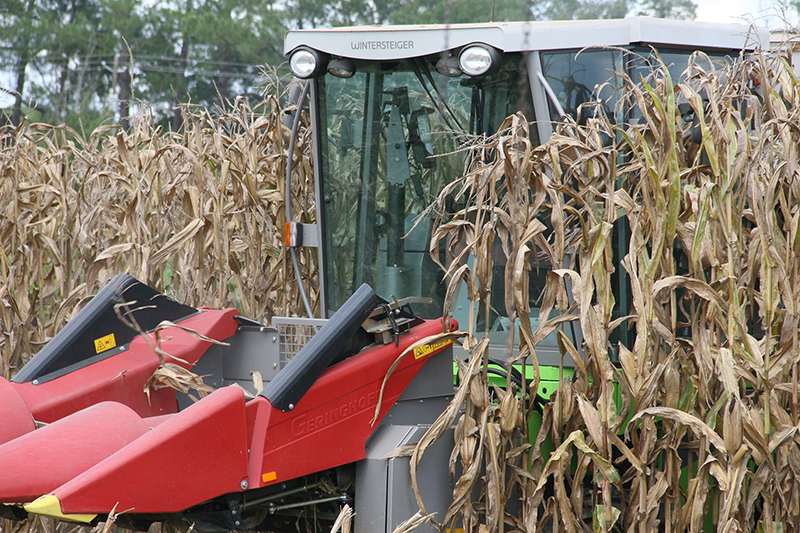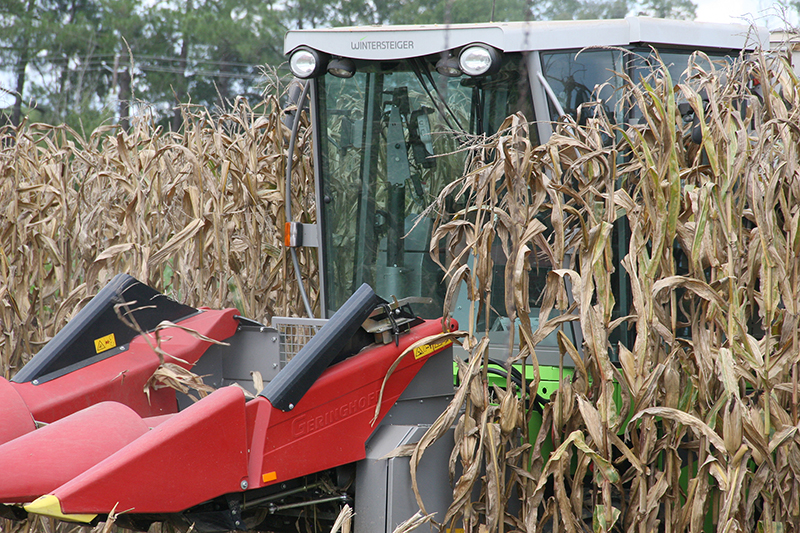Yields similar to previous years’ are expected for this year’s Georgia corn crop. Yields from irrigated acres are expected to be lower than normal, while yields from dryland acres are expected to be better than normal, according to University of Georgia Cooperative Extension agronomists.
“Georgia has experienced a relatively rainy growing season with consistent cloud coverage this summer. A reduction in irradiation reaching the crop canopy is going to have a negative impact on yields in irrigated corn,” said Reagan Noland, UGA Extension’s new corn, soybean and small grains agronomist. “However, the greater-than-normal rainfall will benefit dryland corn yields.”
Upon his arrival on the UGA Tifton campus on Aug. 1, Noland met with recently retired UGA Extension agronomist Dewey Lee to discuss this year’s corn crop.
Corn growers preparing for the upcoming harvest season need to make decisions about their irrigation needs as well as harvest and post-harvest management, including when they will stop irrigating their crop, Noland said.
“There is still corn that was planted late or, in northern parts of the state, corn that has not reached physiological maturity (black layer) yet,” Noland said. “Drought stress can reduce yields all the way up to corn maturity, so irrigation can still increase yields if soil water is limited.”
Determining the optimum time to stop watering the crop helps growers maximize profit margins, he said.
Tracking grain moisture as the corn dries in the field is important in planning the harvest, Noland said. If the corn is left in the field too long, it increases the risk of reduced grain quality and yield loss due to lodging or pests.
“Post-harvest management may involve additional drying to ensure the grain is dry enough for storage and may require the use of pesticides in the bin to maintain grain quality,” he said.
Noland also recommends that producers consider weed management once their corn is harvested. Growers want to avoid herbicide-resistant weeds that can establish and go to seed.
“One strategy is to keep the field covered with a growing crop to suppress weeds. Depending on the timing of the corn harvest, this could be a late-planted soybean, a winter small grain or a cover crop,” he said.
For more information on Georgia’s corn crop, go to t.uga.edu/3rF.





